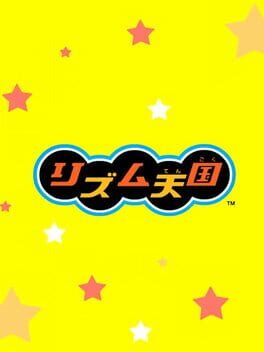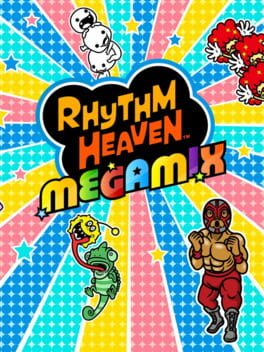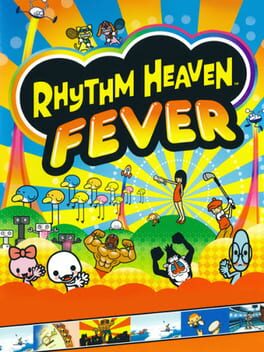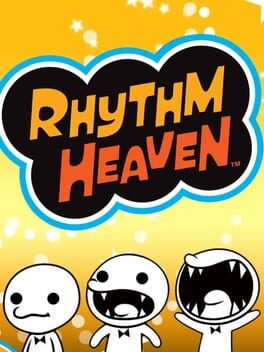

A rhythm-action game like no other from the same team that created WarioWare. Rhythm Tengoku contains 48 minigames that put your rhythm to the test in a variety of crazy scenarios. Rhythm Tengoku was developed by Nintendo R&D1 and released exclusively in Japan for the GBA in 2006 and in arcades with Sega's help in 2007. Being developed by the same studio responsible for the WarioWare games, Rhythm Tengoku mixes the mini-game based gameplay with rhythm game elements, featuring unusually high-quality music for a GBA game. The game started development in 2004. A 2002 prototype for a GBA drum sequencer was incorporated into Rhythm Tengoku as well: the player can freely drum within the Sound Test or take on 19 drum lessons. (Source) The game contains eight stages with five rhythm games and one remix of the previous five each, adding up to 48 different mini-games total. Each game can be completed without hitting every note perfectly, although doing so will unlock various rhythm-related bonus games and modes, such as a drum set where you have to mimic what the drummer does. Much like the Wario Ware series of games, Rhythm Tengoku is all about following your senses and trying to be aware of various cues in the visuals and audio. This emphasis on sense instead of language makes it quite easy for anyone to pick up and play, even though the game is entirely in Japanese (and consequently only available in the Asian region or through an import website). For example, one of the game's levels has you rapping with a computer-controlled character. He'll speak a colour-coded Japanese phrase, and the player must press 'A' in different rhythms. Although the game explains what rhythms to do for which phrase, non-Japanese speaking players can watch hand movements on-screen to figure it out without the need for language. Occasionally, challenges will crop up, asking you to complete a level without any mistakes. Doing so earns you a certificate for that level, and a pink heart with a 'P' on it appears in that level's description.
Also in series
Reviews View More
In parts it was what I was expecting it to be, but not at all at the same time. I was expecting the wacky stuff I saw from prehand footage, but I didn't expect it to hit so WELL, this being on the Gameboy Advance REALLY helps in ways I didn't expect. Not only because of it having a similar amount of Wario Ware Mega Micro Games feel in it's aestheatics despite both being very diferent aestheatics (which adds up given they're by the same developer), but rather, they 𝘤𝘰𝘮𝘱𝘭𝘦𝘮𝘦𝘯𝘵 each other 𝘷𝘦𝘳𝘺 well.
It also houses quite a lot of variety. The main mini games in addition to bonus games that while I got far from all of them, I nontheless apreciated their inclution! As well as the mail section, that alone added a LOT of charm!
And it also uses the gba's controls VERY effectively in a lot of the mini games. They really took the most out of a d-pad and two buttons.
And the music WOW the music. I wasn't expecting to be hit by full on licenced J-Pop music in this game, which 𝘮𝘪𝘨𝘩𝘵 be why it hasn't been localized still in addition of it being a pretty late GBA title.
Oh and one of my favorite things about this experience, was the additional note the fan translators left in the initial first mail, commenting on how dificult of a proccess this was. And after thinking about a lot of what they did, in terms of some mini games being fully in Japanese, the additional notes left in the Caligraphy mini game and just the overall well made titles for the mini games in addition to everything else, it's obious that not only this game, but this fan translation as well, were made with a LOT of passion and soul behind them.
Overall, this was a wonderfull surprice that I'm glad I gave a chance. At first I wondered if it was worth it given the other games existed, but not only that being a foolish mindset to begin with of this being it's own game, but it becomes even more foolish now, due to now knowing the sheer SOUL this game oozes. Even though I haven't played the other games yet, I'm MORE than sure this game has it's own identity to stand fully as it's own experience. Someone please slap me in the face for thinking that before giving it a chance.
it does have some first game wonkiness tho in a couple stinker minigames (why does Quiz exist. Fuck Quiz) and some inconsistent difficulty in how it hands out awards, some minigames happily give out a superb rating even if you fuck up multiple times while others demand near perfection
There are the weird cartoony premises that the Rhythm Heaven series would be known for, but Tengoku is special in exhibiting a lot of ordinary situations told through the magic of rhythm: marching, dancing, calligraphy, fireworks, factory work, etc. This pairs well with the game's full usage of the GBA's control scheme, into what's essentially a game where you control rhythm stage plays like a drum kit. The series would become zanier with its sequels, but Tengoku is still an exceptional rhythm game! No notes on screen, no scores, just make the performance on screen play well! All with the power of your typical video game buttons. Something that the series would surprisingly leave behind for only one attempt, for better or for worse.
Además de que aún se ve que estaban experimentando con los minijuegos, ya que algunos de estos como Hopping Road o Bunny Hop se sienten muy simplones. Sin mencionar que Quiz Show es uno muy malo, ya que no te exige nada de ritmo para superarlo.
Pese a todo, el juego sigue siendo bueno, pues igualmente es un juego muy disfrutable que pone a prueba tu sentido del ritmo de forma simple pero satisfactoria.



